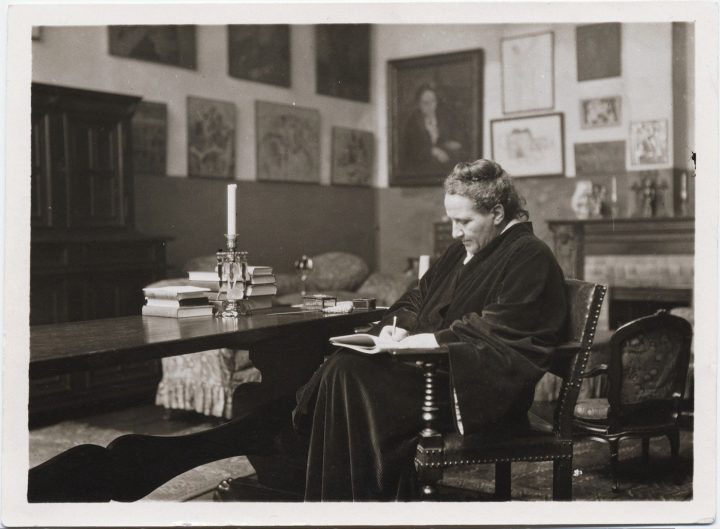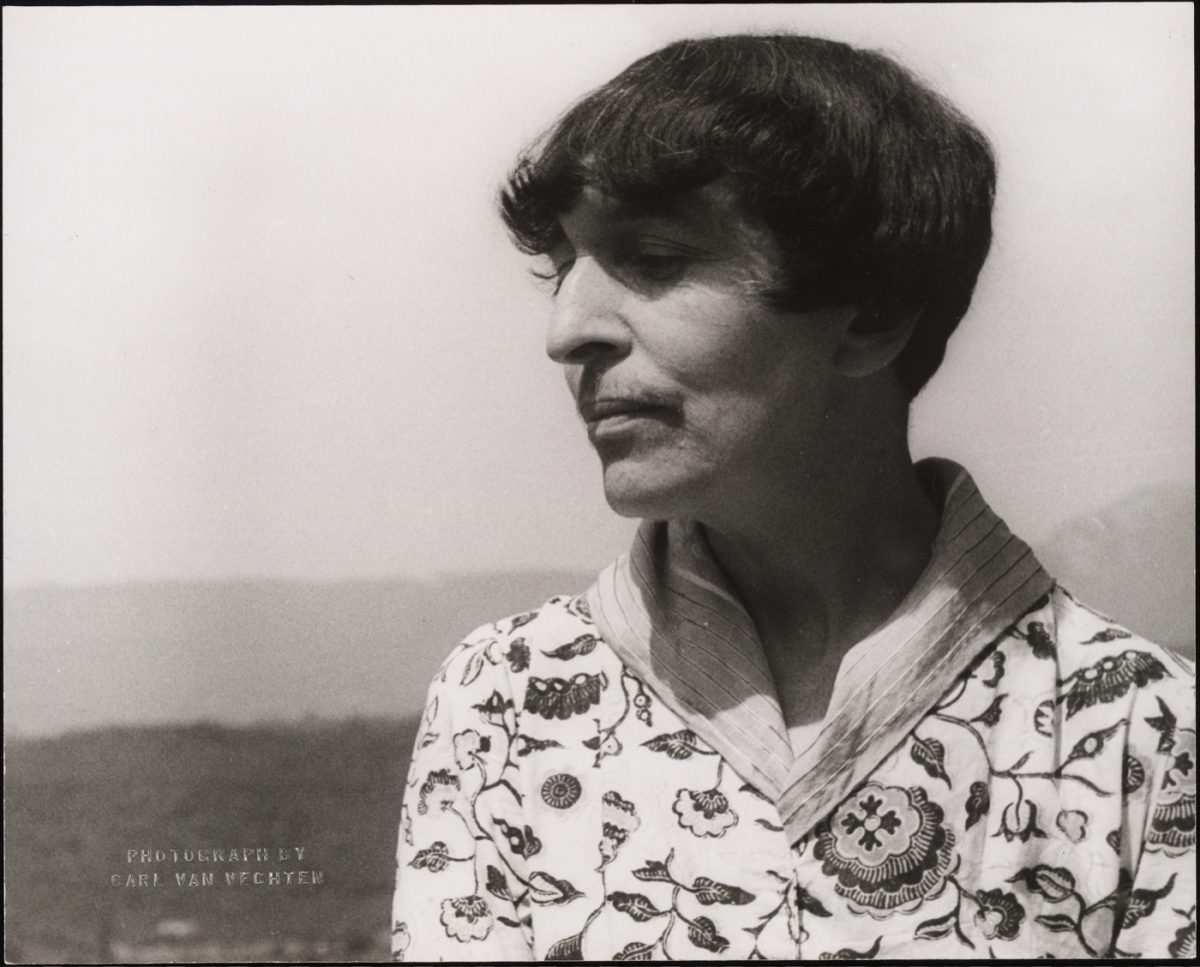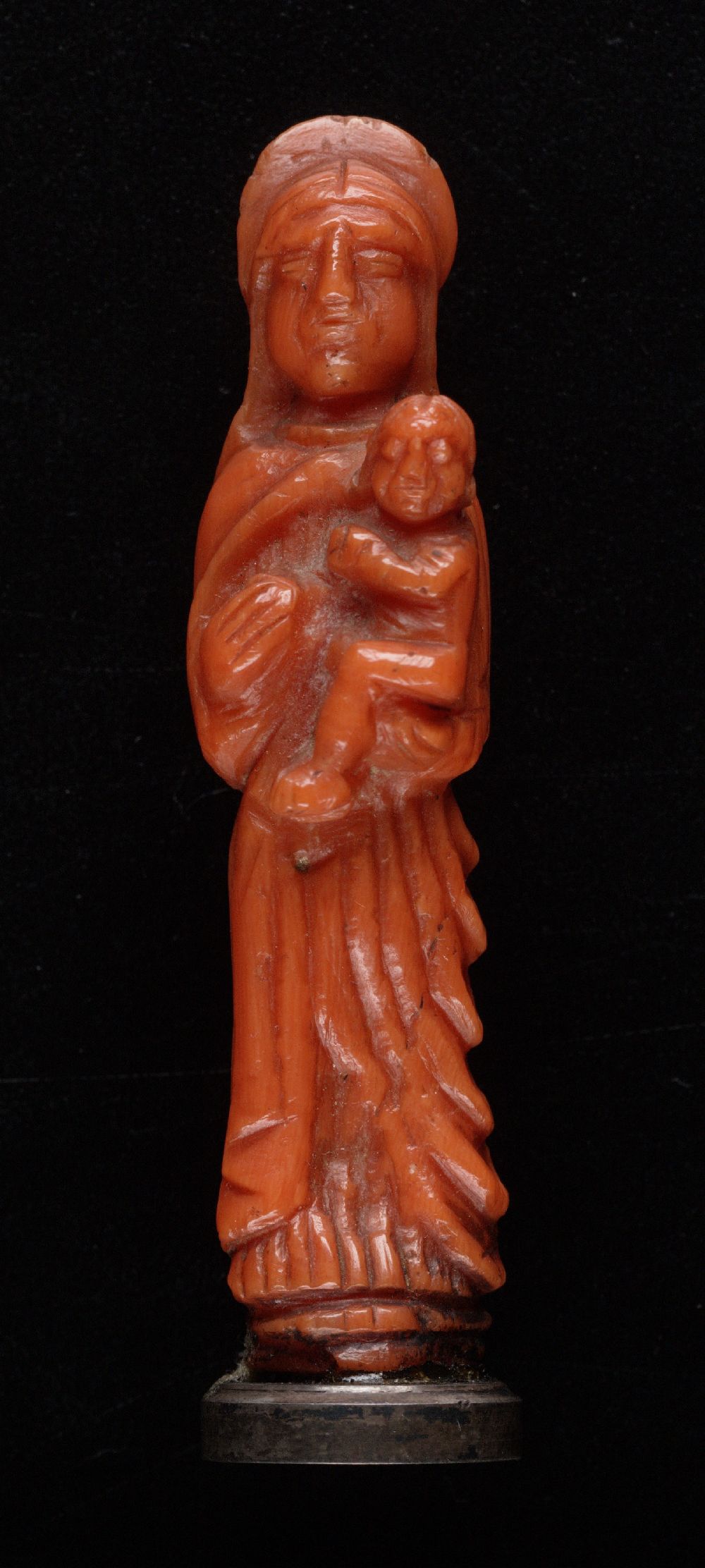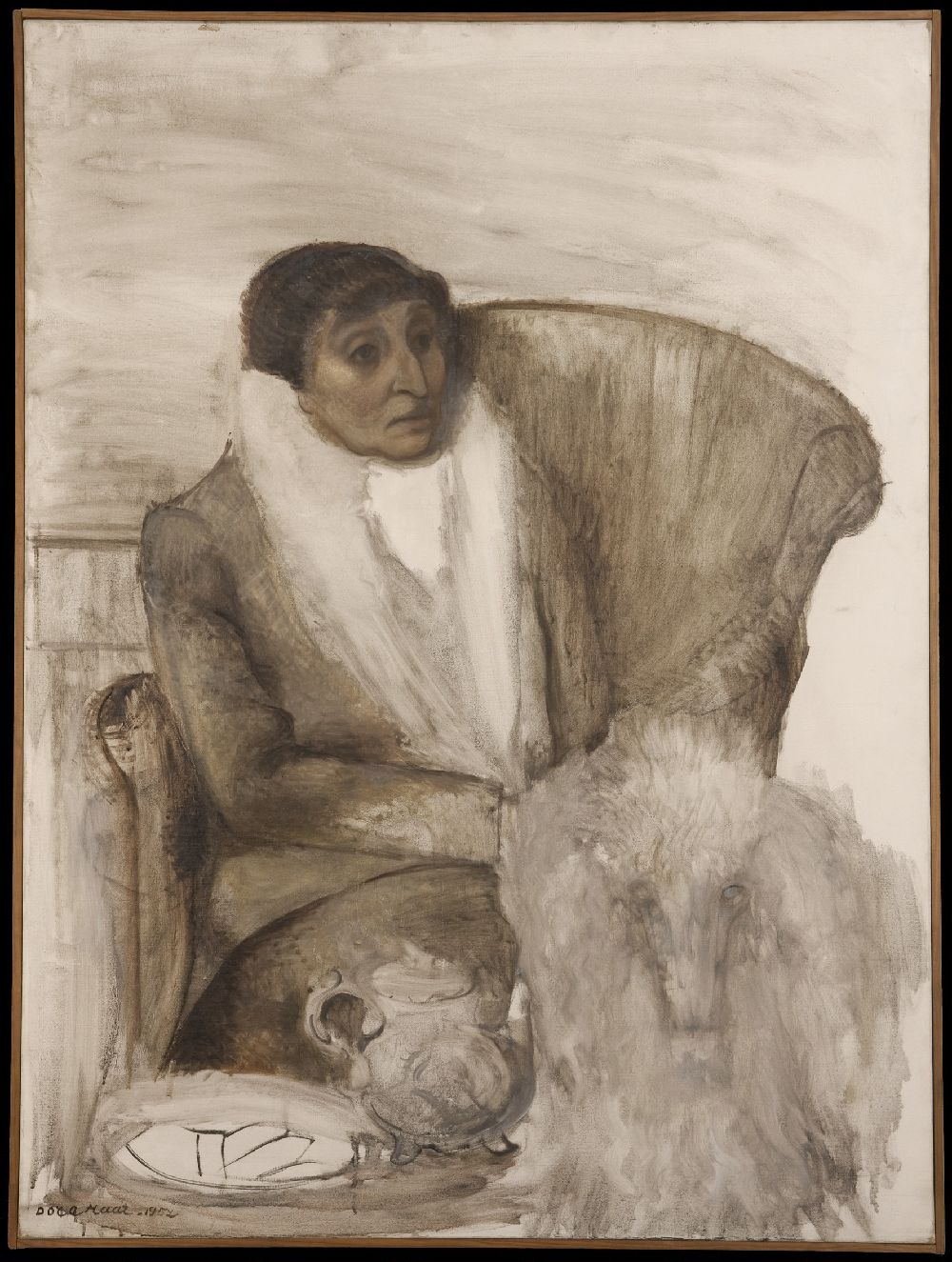
The relationship between American novelist, poet, and art patron Gertrude Stein, and her American life partner and Parisian scene doyenne Alice B. Toklas is one of the most influential meetings of minds in the last century. The pair met in Paris in 1907, and the 40-year relationship that unfolded became the bedrock of the Parisian avant-garde for artists and writers, producing not only Stein’s own famously experimental writing, but also fostering the careers of artists like Henri Matisse, Georges Braque, and Pablo Picasso.
-

Alice B. Toklas at Billignin, photographed by Carl Van Vechten -

Alice B. Toklas and Gertrude Stein in a plaza, with pigeons, circa 1908
This literally storied relationship — captured in Stein’s breakthrough quasi-memoir, The Autobiography of Alice B. Toklas (1933) — can be examined in historic detail via the Gertrude Stein and Alice B. Toklas Papers, an archival collection of manuscripts, letters, photographs, art, and even clothing, housed at Yale University’s Beinecke Rare Book & Manuscript Library. A 1947 essay by Donald Gallup for the Yale University Library Gazette (Vol. 22, No. 2) details the acquisition of the Stein archive, following the author’s death in 1946, due largely to her close friendships with playwright Thornton Wilder and her literary executor Cal Van Vechten, both of whom had strong ties to Yale. The papers span the years 1837-1961 — including the two women’s separate upbringings in turn of the 19th century California — with only a selection of the archive currently available online.


Among those 519 items currently digitized, there are a wealth of black and white photographs, letters, and notes between the two partners, as well as from family and friends, the majority of Stein’s literary output, and a host of charming ephemera from their daily lives. Series I of the collection includes holograph and typescript drafts of the majority of Gertrude Stein’s writings, including “The Autobiography of Alice B. Toklas,” “The Making of Americans” (complete with a quantity of notes, or “studies”), “Tender Buttons” and a group of unpublished fragments and carnets, notebooks kept by Stein with preliminary drafts of writings.

The archive contains letters sent from a wide variety of Stein’s friends: artists such as Georges Bracque, Jean Cocteau, and Pablo Picasso; writers such as Sherwood Anderson, Ernest Hemingway, and Thornton Wilder; and acquaintances through many years such as Mildred Aldrich, Etta and Claribel Cone, Robert Haas, Mabel Dodge Luhan, Sir Francis Rose, Virgil Thomson, and Carl Van Vechten. It also contain letters from many of the same people, the latter group containing Alice Toklas’s correspondence following Gertrude Stein’s death.
Portions of the archive on personal papers and clippings gather together various personal effects of Stein and Toklas as well as documentation of Stein’s life as reported during her lifetime. Series VII, Photographs, show Stein from early childhood through 1946, the year she died. Prints showing Alice Toklas, various friends, artworks, and locales are included in this series, as are several volumes of prints made by Carl Van Vechten. The trove also contains numerous artworks and objects given by Stein and Toklas, including a painting by Pablo Picasso and a sketch by Henri Matisse.
-

Bolero style waistcoat in painted and quilted fabric depicting frolicking woodsmen and peasant women (undated) -

Bolero style waistcoat in red flower-patterned brocade cloth with gold trim and two-button closures (undated)
-

Handle for rose seal, a carved orange jade madonna and child. In leather box embossed: Leuchars & Son Geffroy Suode Paris Made in England (undated) -

Wax seal for embossing envelopes reading: “Rose is a rose is a rose is a rose” in a circle around a central rose graphic (undated)
For fans of Stein or Toklas; those with a desire to peek into the lives some of the most famous characters in art and literary history; or anyone looking for a cross-section of life during an extraordinary period of international change and expansion, the collection is an incomparable treasure. It not only captures the exceptional nature of Stein and Toklas’s lives and relationship, but offers details of them at their most human.



0 Commentaires